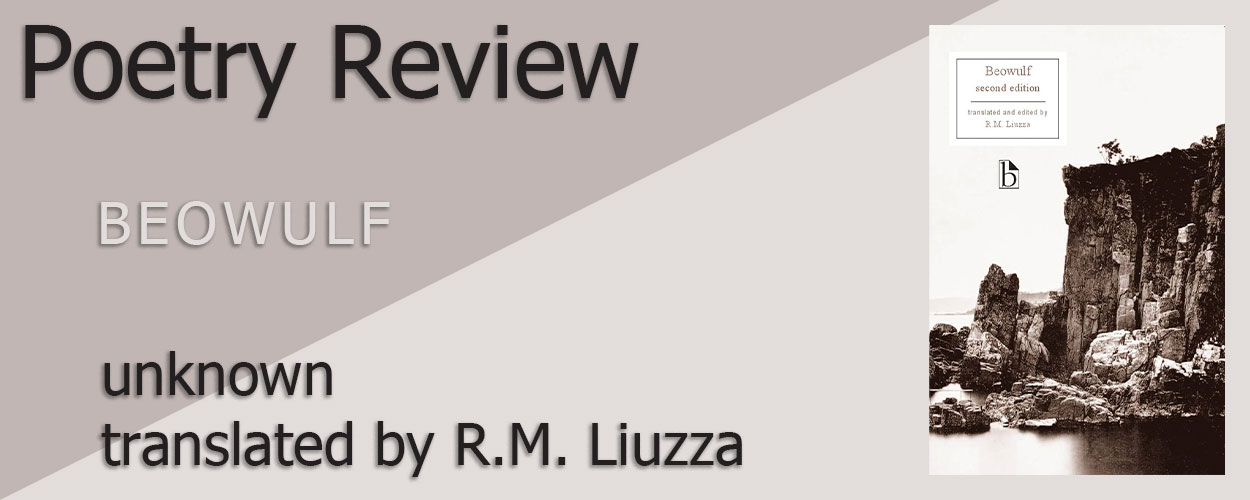

it was good; I liked it
Some of you may already know I’m not the best at picking up on abstracts in poetry (of which there are plentiful) but I think epic poems are really my thing. I still enjoy reflective poetry, but following a narrative will always be my preference.
Read: June 22 – June 24, 2024
Genre: Poetry, Classic, Epic
Audience: General
Book contains: death, semi-graphic battle
Purchase (this most common) copy from Amazon.ca
The hero, Beowulf, first saves the Danes from a fearsome monster, Grendel, and later more monsters besides. In his late years, after many successful seasons as king to his people, he falls in battle defending them from a dragon.
This epic poem was a wild ride—and definitely my kind of poetry! It followed a somewhat complicated narrative, but a narrative nonetheless, and I really enjoyed the adventure.
It is unknown who the original author of this work is, or even if it was only written by one person (rather than several) as it sometimes strays from the ongoing narrative at times to go on tangents, but overall, it tells the story in the third person, in a melange of voices.
There are so many translations of this book, and I had one of the rare finds. Most commonly are translations by Seamus Heaney or by Frances Barton Gummere, but mine was translated by R.M. Liuzza, so I couldn’t find a free audiobook version of it. Therefore, I read it the old-fashioned way over the weekend (and into the week); I am interested in re-listening to a different translation, perhaps while I’m working.
There are quite a few different characters in this poem, the first and foremost being Beowulf, a hero who jumps into battle to save others and always comes out victorious. It was a bit difficult for me to gauge, but while he was eager for glory, most of the battles he engaged in were for the purpose of defending humans (usually his blood relations) from “monsters”. He seems quite an honourable fellow.
Because of his noble nature, Beowulf has good relationships with his relatives and his people (being a king). There is little to no animosity between him and others—if you don’t count the trolls and/or the dragon he fights.
Living up to its poetic structure, this epic is told in stanzas. I cannot say whether there is meant to be a rhyme scheme, since it is translated from Old English, but there is a definite rhythm to it at the very least. There are also some methods of speaking that don’t follow our modern say sentence structure, which made it somewhat difficult to understand at times, but also very fascinating to read.
Because of some of the tangents the narrative falls into, the pacing is hard to pin down. The battles were given in vivid detail, which I loved, and there was a lot of dialogue in between to balance it out a bit and slow down the pace a bit. There were also time jumps, as this poem encompasses Beowulf’s time as a young warrior as well as his years as an old man.
A classic that I think many people would enjoy. I highly recommend this book to history buffs, general readers, and fans of the Scandinavia/Denmark part of the world.
Inferno by Dante Alighieri
The Pin-Thief and the Sunflowers by Sofia Federova
*Maggot Dance by G.O. Kayode*
Faust by Johann Wolfgang von Goethe
*North Star Heart by Natasha Silva*
Embers: one Ojibway’s Meditations by Richard Wagamese
Beowulf by unknown
Tigerpetal Press is a small book press dedicated to publishing local authors and poets.